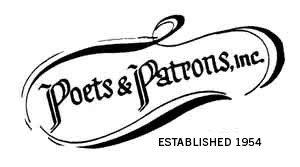Bless this man who lies abed
with so much riding on the way he dies,
Bless his riding the range, his bronc riding,
his riding it out, letting it ride,
riding herd on, riding rough-shod over,
and his sometimes riding the fence.
Bless his fence building, fence fixing,
his offense, defense, nonsense and his sensitivity.
Bless his camp tending, crop tending, pretending,
his tenderness tending sick lambs at night,
his tending to park at the Ten Sleep bar,
his being wrong and his being right.
Bless his bull breeding, bull-shitting, bull-dogging,
his shooting the bull and his humble going home.
Bless his fishing, hunting, dogging the timber,
sheep dog training, curses blaring, pups birthing,
nursing into dog days of his doggedly caring for sheep.
Bless his lambing, docking, shearing,
his mouthing out, his dressing out,
and his being out of time.
Bless all that husbanding
and the wife a lifetime at his side.
Bless his siring five to carry on the line.
Bless their dancing at the Wagon Wheel,
his sheep wagon, covered wagon leading the train,
his being on the wagon
and the wagging tails of his well trained dogs.
Bless his logging and cabin building,
the muddy cab of his pickup truck,
his wethers, ewes, his bucks, his cussing and his cussedness,
his luck and his being down on it.
After tending his land and tending to land on his feet,
bless his recent forgetting, falling, recalling,
calling out in the night,
his victories, feats, defeats.
Bless his wink for the nurse’s assistant,
his cursed insistency on peeing in the sink
Bless his branding cattle, branding sheep,
rounding and rounding up,
rough riding, rodeo riding,
riding high, riding west into the sunset.
Bless him.
